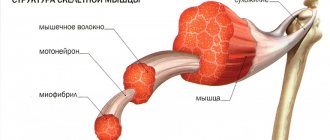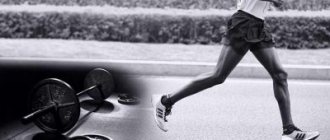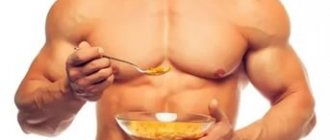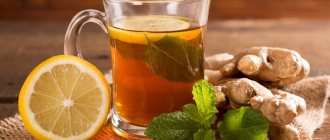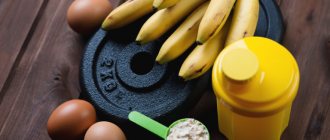Share:
Athletes after grueling workouts often drink freshly squeezed juices to restore fluid reserves, as well as vitamins and minerals in the body. Fresh fruit and vegetable juices prepared using electric juicers, when consumed correctly, have a positive effect on the well-being and general health of the athlete.
Carbonated drinks
You should say a big NO to carbonated drinks like Coca Cola after you finish your workout.
Carbonated water gives the body nothing but a lot of sugar. Sugary drinks will work like a fast-acting energy drink, but they will soon have the opposite effect. In addition, they do not have any nutritional benefits.
If you think switching to diet sodas will have a healthier effect on your body, you need to think again. The artificial sweeteners they contain can negate the benefits of the exercise you just completed.
What about water and juices?
You can drink water both during training and after training. Freshly squeezed juices are very popular among athletes. For example, natural orange juice diluted with water is a favorite among athletes. But these juices must be freshly squeezed, since store-bought juices contain harmful dyes and preservatives that contain excess sugar. Drinks are very important for weight loss, but don't forget about the workouts themselves and proper nutrition necessary for weight loss.
Chocolate milk
Chocolate milk is perfect for those who prefer strength training and want to build muscle mass. It contains the best protein-carbohydrate ratio. Drinking includes beneficial substances (helping to restore muscles and strengthen bones) - riboflavin, vitamins A, B12 and D, phosphorus, calcium and potassium. It is difficult to find high-quality chocolate milk in our country, and unfortunately, this product has low nutritional value, too little protein and high fat content. For it to be beneficial, it must be of proper quality (minimum fat, large amounts of proteins and carbohydrates. The TruMoo brand is popular.
People who are interested in cooking can use a simple recipe for making a drink: you need low-fat milk, pour cocoa into it and stir thoroughly.
Many experiments have been conducted to determine how low-fat milk affects the endurance of athletes. Researchers at the University of Connecticut found that runners who drank low-fat milk after running at a moderate pace experienced less fatigue and their muscles remained toned. During the biopsy, it was found that the muscles of athletes who drank such a cocktail recovered faster, by analogy with drinks that contain only carbohydrates.
You need to drink freshly squeezed juices, not those sold in boxes. Cherry juice contains a large amount of antioxidants and flavonoids, they help reduce muscle pain that appears after physical activity, relieve inflammation and relieve swelling. Experts from an English university conducted a study in which data showed that people who jogged and regularly consumed cherry juice, before and after training, recovered much faster than those who did not.
Sports drinks
Sports supplements come in different forms and have different effects on the body. Therefore, they should be chosen taking into account the wishes and the amount of microelements and vitamins in the body. If your goal is weight loss, then you should choose a supplement with exactly this effect. By doing this, you can choose an additive that will meet all the specified parameters. Many people think that sports supplements are only useful for “bulky” people. But in fact, having selected the right component, aimed, for example, at losing weight, you can safely use it.
The most common and well-known drink for weight loss is a protein shake.
To prepare it you need protein powder, then the recipe varies according to the wishes of the person.
- Milk and cream with cocoa form the basis of the first type of recipe.
- Milk and water are included in the second option for preparing this drink.
Both recipes call for completely skim milk.
You can also add berries or fruits to your protein shake to suit your taste. But there is a third, home-made way to prepare this cocktail.
- Cottage cheese, milk, honey, banana, egg white and olive oil.
In this case, it is also worth using low-fat dairy products to achieve greater effect.
A protein shake not only helps you lose weight, it also restores muscle structure and fills your body with protein after workouts.
Fruit juice in packaging
You may think that store-bought juice is a healthy solution that will give your body the vitamins it needs. But unfortunately, this is not the best choice to quench your thirst after a workout.
Many of these drinks contain high fructose syrup, which can lead to obesity and increase the risk of developing metabolic diseases.
Plus, juices don't contain the vitamins and nutritional fiber that you find in real fruit. The nutritional value of the fruit is lost during the juicing process and you will end up consuming pure sugar in the form of fructose.
Why is it important to drink fluids after physical activity?
The main fuel that provides the body with energy during training is carbohydrates.
The energy reserve that is quickly mobilized is glycogen; it contains all the glucose necessary for the body. It is found in limited quantities, for this reason glycogen resynthesis is an important part of the regeneration process. Depending on how quickly glycogen reserves are brought back to normal, recovery processes will occur. Normalizing water balance is an equally important part of recovery. Loss of fluid greater than 2% of total body weight causes a decrease in endurance of more than 10%. That is, with sweat, which is removed from the body, energy comes out.
Glycogen is restored after training in stages:
the first (fast)
- occurs without the presence of insulin and is approximately half an hour to an hour;
the second (slow)
occurs in the presence of insulin.
The presence of insulin is one of the main factors, and at this (first) stage, recovery occurs much more intensely, sensitivity to glucose absorption and insulin is quite high. In the USA, in 1988, an experiment was conducted among cyclists, during which it turned out that the absorption of synthesis was 45% slower when carbohydrates were supplied 2 hours after physical activity and immediately after exercise.
The “flow” of glycogen and the speed at which it is absorbed are also important. For example, it was found that maximum glycogen resynthesis occurs two hours after exercise and is 1-1.5 g/kg. A study conducted during training showed that the glycogen peak was 0.7 g/kg. This suggested that there is no need to try to take as much carbohydrates as possible at one time after finishing classes; it is recommended to drink little and often.
In addition, to understand that the drink is intended for the restoration processes of glycogen, it must contain proteins in order to carry out creative activities and promote accelerated recovery of damaged muscle areas (after all, minor injuries are possible during training). Accordingly, the composition of a drink designed to restore strength after sports should include carbohydrates (glycogen levels are quite high), electrolytes (sodium, chloride, potassium) and amino acids. Carbohydrates make up 60-65%, proteins 30-40%. Drinking such a drink will help quench thirst, restore fluid loss, become the basis for muscle growth, and replenish glycogen levels.
Juices
Juices should be natural or freshly squeezed (nectars or juice drinks are not suitable). Cherry juice helps a lot after a workout. It contains flavonoids and antioxidants: they eliminate muscle pain, relieve swelling and reduce inflammation in injured fibers. If you regularly drink cherry juice before and after workouts, your muscles will recover much faster than usual.
Apple juice with mineral water
The most popular drink among athletes is apple juice with mineral water. Most often, apple juice and mineral water are used to prepare it in a ratio of 1:3, which is an extremely useful composition, since mineral water reduces the calorie content of apple juice. This drink combines fruit sugars as a source of energy and minerals such as sodium, magnesium and calcium. It is this composition that makes apple juice with mineral water an excellent source of energy, vitamins and minerals for all lovers of fitness and an active lifestyle.
Apple juice contains fruit and grape sugars, which are a source of energy, fruit acids, potassium, sodium, vitamins and other beneficial nutrients. In addition, the carbohydrates contained in apple juice are quickly absorbed and give our body and brain the necessary boost of energy. That is why this refreshing drink has a positive effect on our memory, concentration and reaction. Moreover, due to the large amount of simple sugars in apple juice, a constantly high level of glucose in the blood is maintained, which helps to avoid attacks of hunger.
Apple juice also contains sodium, which helps maintain fluid balance in the body and prevents the development of muscle spasms. Any athlete knows that the more fluid he wastes, the more sodium he needs. That is why apple juice with mineral water as a source of sodium is the best option for athletes after heavy physical activity.
Nutritional value of apple juice (per 100 ml):
- 49 calories;
- 10.6 g carbohydrates;
- 2 mg sodium.
Glycemic index: 50.
Water. Drink water after your workout!
You should drink regular water that has passed through the filter after physical activity. Don't forget this, always carry a bottle of water with you. As soon as thirst arises, quench it. Water gives a boost of vivacity and energy, spring water is especially beneficial. The mineral water also perfectly restores strength. The main thing is to be sure that it really came from a spring. “Essentuki” and “Karachinskaya” are considered the highest quality mineral water. Drink mineral water without gas. Water is indispensable during physical activity. Remember this.
Supplements affecting muscle growth
Serious power loads lead to the destruction of muscle tissue. Compensation for this unfavorable effect of intensive training is carried out due to large energy expenditures during exercise. In order for muscles to grow, it takes a certain amount of time and feeding the body with components that give an impetus to increasing the volume of muscle fibers. Substances entering the body from food are not always sufficient to achieve such an effect. Protein and carbohydrates inhibit the destruction processes and stimulate muscle mass to grow. They are indispensable for athletes.
These components are intensively spent during training and require replenishment. There is a special period of time called the protein and carbohydrate window. It is best to consume these substances and occurs within the first 15-30 minutes after completing a workout. The ideal choice would be highly digestible foods. These can be gainers or protein shakes.
Minerals, vitamin complexes and other supplements do not have a direct effect on muscle growth. They are catalysts that help stimulate the process of transformation of proteins absorbed in the body into muscle fibers. During training, not only protein is consumed, but also glycogen, which is a special type of carbohydrate that has a direct impact on energy production. In other words, this connection allows you to have the strength to carry out the training. Its deficiency, on the contrary, causes lethargy and the inability to exercise and swing normally.
And if you train intensively, it is necessary to restore lost reserves of proteins and carbohydrates. The best time to take carbohydrates and proteins is considered to be the first 15-30 minutes after completing a workout. The cocktail must be balanced. Proteins should account for about 35-40, and carbohydrates - 60-65%. Along with these components, the drink must contain amino acids, as well as substances with chloride, potassium, and sodium.
During training, not only carbohydrates and proteins are consumed, but also life-giving moisture, which comes out in the form of sweat. When completing your workout, be sure to drink plain water. Boiled will do, but if possible, it is better to give preference to either structured or thawed. Some athletes who have been training for many years add lemon juice, salt, and crushed glucose to the liquid.
Protein shakes aren't the only supplement you can take after an intense workout. There is also a type of sports drinks called isotonics. They contain a mineral and vitamin complex that promotes muscle growth, and are also rich in carbohydrates. For athletes who lift weights, chocolate milk is best. It contains a balanced ratio of carbohydrates and proteins. In addition, its composition is rich in minerals and vitamins.
This is not true for all chocolate milk. Store-bought does not always meet the desired quality, so it is best to prepare such a drink, if you are not sure of the quality of the product, at home. The main benefit of chocolate milk is that after intense training, it can reduce the breakdown of muscle fibers.
Natural juices have a good effect. Not to be confused with nectarines and factory-made ones with additives. We are talking only about natural juices. Cherry is considered the best. It not only helps restore muscle tissue, but also helps relieve swelling, inflammation, and also suppresses pain.
You should not focus your attention solely on the drinks that you need to drink after completing your workout. Food is also of great importance. A full meal should be after the protein window closes, that is, replenishing protein reserves. Eating should be no later than one to two hours after training. During this period, a protein shake is recommended.
This drink should also be drunk before going to bed, since deep rest after a day's exercise is the time when muscles begin to recover. Casein shakes are also good. It is recommended to avoid carbohydrates before bed. This is due to the fact that in the evening they provoke the accumulation of excess weight in the body.
What to drink during TRAINING!? What to take immediately after TRAINING!? BCAA - INSULIN - YOHIMBINE...
